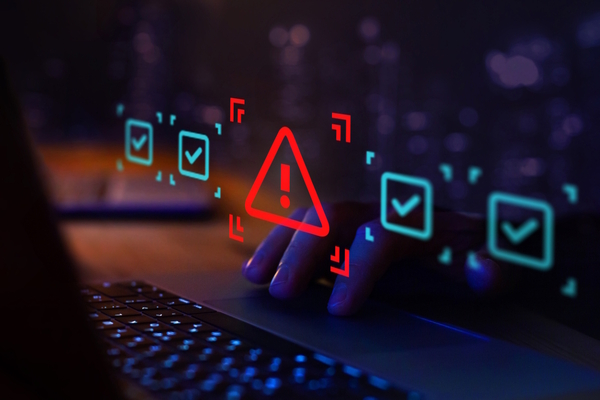Preparing businesses for a post-quantum future

Quantum computing remains largely out of the public eye, not yet part of everyday conversations such as artificial intelligence (AI). But that doesn’t mean it isn’t coming. In fact, it’s on the horizon, and is expected to make significant strides in the next five to ten years.
However, as quantum breakthroughs accelerate, so do the questions being asked about the pros and cons – and whether the technology will indeed change things for the better. While quantum computing holds the potential to revolutionise entire industries – from healthcare and finance to national security – it also brings a host of complex challenges. Concerns around ethics, misuse, inequality of access and security risks are growing louder.
Will quantum technologies help create a more secure, efficient world? Or will they introduce new vulnerabilities and a wider digital divide? Over the past few months, as governments and industry leaders sharpen their focus on quantum strategy, this conversation has become more urgent, more nuanced and increasingly relevant at board level.
The National Cyber Security Centre (NCSC) recently issued guidance to help organisations prepare for and protect against threats posed by future developments in quantum computing. The report outlines a phased timeline for organisations to transition to quantum-resistant encryption methods over the next decade. This includes increased calls for funding, strategic planning and cross-disciplinary leadership.
At the same time, a series of highly publicised cyber-attacks on major retailers highlighted serious vulnerabilities across the sector. Unsurprisingly, it moved cyber-security – and specific quantum threats – further up the business agenda to become a board-level concern for CISOs and risk leaders.
Why the quantum threat demands attention
Quantum computing has moved beyond theory. In recent years, it has made huge strides in areas such as qubit quality, error correction and scalability. Tech giants and startups alike are investing in it, driving its momentum.
A good example is Google’s Willow chip, which performed a calculation in under five minutes that would take today’s supercomputers ten septillion years. Additionally, cloud-based quantum computing has also opened the door to wider access, accelerating innovation.
These advancements are inching us closer to “near-term” quantum breakthroughs – real-world applications that could transform sectors such as finance, healthcare and government. From drug discovery to financial modelling, the potential is immense.
Despite this, we can’t ignore the very real risks that are advancing in line with quantum. In particular, the ability of quantum machines to break today’s encryption methods makes “harvest now, decrypt later” attacks a serious concern for businesses. Hackers can steal and store encrypted data now, with plans to decrypt it once quantum capabilities allow.
The expanding internet-of-things (IoT) and cloud landscape only fuels this challenge. Billions of devices, misconfigurations and the merging of IT and operational technology (OT) widen the attack surface.
When you factor in growing geopolitical tension and a rise in state-sponsored attacks, the need for international co-operation becomes urgent – especially as smaller businesses face even bigger risks.
The business case for action
With all of this said, it’s important to remember that quantum computing also offers the promise of stronger security. Quantum encryption – specifically quantum key distribution (QKD) – enables two parties to share information securely, with any eavesdropping detectable through the disturbance it causes to quantum states.
QKD represents a critical innovation for sectors that rely on highly secure communication, such as finance, healthcare and government. As traditional encryption becomes more vulnerable, QKD emerges as a potentially unhackable alternative.
Quantum computing presents both a significant challenge and a powerful opportunity. By preparing now, business leaders can future-proof their infrastructure, safeguard sensitive data and stay ahead of post-quantum threats. Protecting assets such as medical records, financial transactions and confidential communications will be critical.
Those who act early – investing in quantum-resistant tools and strengthening their defences while exploring the technology’s potential – will be best positioned to succeed as the next era of the digital age approaches.

Kevin is an independent cybersecurity expert who has made significant contributions to advancing the knowledge and understanding of computer networking and systems, evidenced by over 800 published works. Regarded as one of the top cybersecurity experts within the UK, he regularly comments on the latest technological developments and cyberthreats, including the Internet of Things (IoT) and smart devices, cryptocurrency, phishing-attacks and ransomware.

Business Reporter Team
Most Viewed
Winston House, 3rd Floor, Units 306-309, 2-4 Dollis Park, London, N3 1HF
23-29 Hendon Lane, London, N3 1RT
020 8349 4363
© 2025, Lyonsdown Limited. Business Reporter® is a registered trademark of Lyonsdown Ltd. VAT registration number: 830519543





